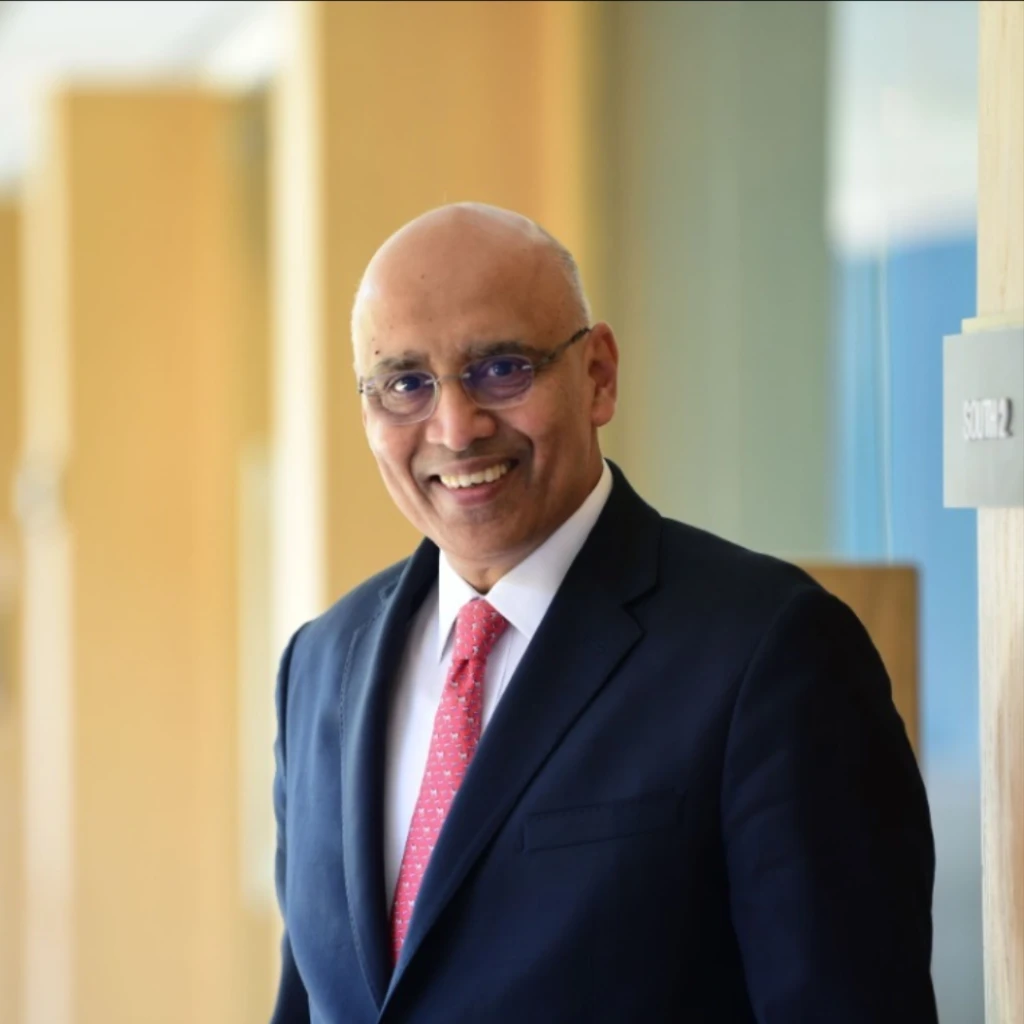
We at Ladies Who Lead, understand that every individual learns and retains knowledge differently. This is why we curate diverse formats to enable learning and growth in multiple ways. Leaders’ Lounge is one such format where our members get a chance to hear and learn from an industry stalwart.
At our recent Leaders’ Lounge, we were joined by N. Venkatram, Country Head at CDPQ India and former CEO of Deloitte South Asia. It was refreshing, and rare, to see a global leader walk in not just with presence, but with pages of handwritten notes, deeply prepared for a dialogue. With a career spanning over four decades, Venkat brings decades of experience leading institutions, navigating transformation, and grounding leadership in purpose and integrity.
He spent 30 years at Deloitte, including eight years as CEO and Managing Partner of Deloitte South Asia, during which the firm’s revenues grew more than 4.5 times – a testament to his vision and ability to steer large organizations through change and growth.
What stood out from the beginning was his authenticity. He spoke about his early learnings and how he chose to stay technical to stay relevant. It is not what you do but what you become, that defines you, he said. Here are some learnings that stayed with us:
1. Nothing you do in Life is Wasted
Even the most unexpected experiences show up later in your journey. Venkat shared how the discipline of yoga shaped the way he leads – offering lessons in sequencing, balance and alignment. He illustrated the paradox that strength is incomplete without weakness, and narrated how he questioned traditional performance frameworks like the bell curve, advocating instead for inclusive systems where every role is valued.
2. Build Systems That Help People Succeed
Venkat spoke of transforming leadership from being critical to being enabling. Help people change habits by giving them structure and support – not just feedback. For leaders, ego should give way to awareness. He highlighted how collaboration and communication, not individual brilliance, builds sustainable teams in the long term.
3. Culture of Care and Courage
He outlined a leadership mantra: Care. Connect. Commit. That included building workplace policies with empathy, like offering health insurance for in-laws as a retention strategy that also cultivates respect at home. Culture is an inner alignment that builds trust. Any pain people experience signals misalignment, and it is important that you create an environment where they have the courage to speak up
4. Remove Bottlenecks to Growth
Leaders don’t just scale organisations, they scale themselves. Whether in business or personal life, Venkat urged leaders to identify and remove obstructions – mental or structural. Inclusive behaviour enables the removal of obstructions. True progress, he said, comes from iterative sprints to tackle constraints with intention and innovation.
5. Anticipate the Future, but Stay Grounded in Values
The ability to predict the future gives leaders a greater chance of success in building a resilient organisation. He reflected on navigating the pandemic with clarity, preparing to take on client opportunities afresh with a trained, recalibrated workforce. “Running a business isn’t hard,” he said. “Having a moral compass is. Make integrity a non-negotiable.
6. Leading Through Crisis
One of the most powerful moments was his reflection on crisis leadership. “In a crisis, the leader’s intense involvement often disrupts the team,” he said. The goal is to stay calm, isolate the problem, and let processes kick in to respond – not ego. Remember that everybody is watching you.
7. From Success to Legacy
Venkat introduced a powerful framework:
Scale is about structure, sequencing, and repeatability.
Soul is purpose, impact, and service to customers and society. Staying Power is resilience, anti-fragility, and continuous learning.
He offered this equation:
Scale + Soul = Impact Soul + Staying Power = Legacy
Scale + Staying Power = Market Leadership
8. Leadership is Energy Management
Drawing from Indian philosophies on balancing the five natural elements of air, water, fire, earth and space he spoke about navigating leadership through channeling energy flows through the elements to transform innate human qualities – illumination (Sattva), action (Rajas), and inertia (Tamas), matching the leadership approach to the context and people involved.
9. Maturity is Acceptance
He ended with a reflection on emotional intelligence – how the hardest thing is sometimes to say sorry, even when the fault isn’t yours. “Agreeing and accepting are not the same,” he said. “Acceptance is not weakness. It’s maturity.”
Conclusion
The session with Venkat was a powerful reminder that great leaders never stop learning. They keep evolving, no matter how much they’ve achieved or how far they’ve come. Your position on the career ladder doesn’t limit your ability to hear a fresh perspective, spark a new idea, or build a meaningful connection. As a member of LWL, you join a platform where your experience is valued, your curiosity is fueled, and your potential for growth is limitless.
